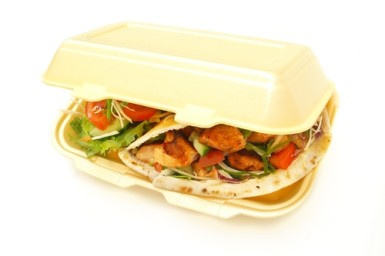Its letter in response to the Daily Mail stated that EPS is “100% recyclable” with thousands of tonnes recycled every year from the UK, as well as data from 2020 showing that 55% of EPS packaging disposed of in the UK was recycled.
It explained that EPS “meets all relevant international health regulations and fully complies with UK Food Standards Agency Direct Food Contact Regulatory Standards”, and is a material widely used to package food and pharmaceuticals.
The organisation said it was “disappointed that the article failed to acknowledge the high degree of regulation in place to protect consumers.”
EPS was invented in 1949 by the scientist, Dr Fritz Stastny, who developed the polymerisation of a chemical process to create expanded polystyrene.
The BPF has said chemical regulatory bodies go through a process of scientific risk assessments to set exposure limits and determine safe thresholds for chemicals that encounter everyday products.
It highlighted that “EPS is safe and does not pose a threat to human health and safety”.
Styrene occurs naturally at low levels in foods such as vegetables, fruits, nuts, beer, and spices, and the BPF states there is “no cause for concern” from exposure at these levels, which are similar to those found in commercially available products.
Environment
The letter also criticised the Daily Mail’s claims that EPS hurts the environment. It has highlighted that there are numerous studies which have investigated the presence of Expanded Polystyrene (EPS) in marine environments.
There have been multiple studies on EPS in marine environments which suggest that EPS comprises a relatively small portion of ocean plastics, estimated at around 0.05% to 3%.
This aligns with data from a 2018 report on the Great Pacific Garbage Patch, which indicated that all foamed plastics collectively accounted for only 0.5% of the total. Similarly, less than 1% of litter items found on European Union beaches have been definitively identified as polystyrene.
The BPF has also highlighted that the EPS industry is actively engaged in supporting initiatives like Operation Clean Sweep, which aims to prevent plastic pellets, flakes and powders from escaping manufacturing facilities and entering rivers or oceans












Subscribe for free